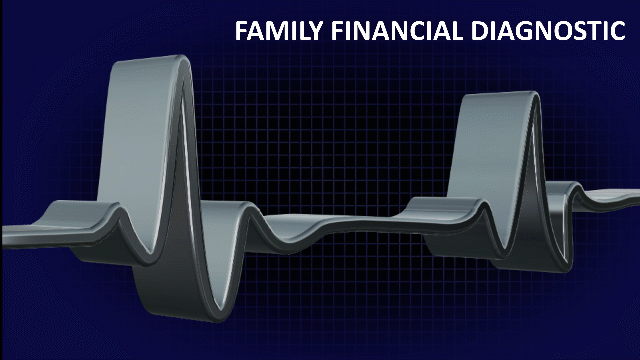
(Tuesday, August 25, 2020; 10:00 PM EST) A terrible truth of the Covid pandemic is that families are at greater risk of losing a matriarch or patriarch. Whether you're a beneficiary or grantor, here's a five-point diagnostic for managing family wealth; issues to consider that might require urgent action due to the unusual times we are living through: When did you last update your will? Wills should be reviewed annually. Do you need a revocable trust to avoid probate? State laws vary, so there are no hard and fast rules, but the Covid crisis has made the use of revocable trusts a more popular estate planning vehicle, preferable to a Will. Courts were recently shuttered across the country. It's prudent to continue expecting delays in the probate court process. If a family patriarch is intubated and can no longer manage family financial matters, a revocable trust facilitates the transition in the management of family assets. Whoever is named as successor Trustee may present the trust document to the bank (which should have a copy of it already) and the management of assets can then be assumed by the successor. GRATS and other trusts should be reviewed, and they are expected to be recommended more often in managing family assets in the months ahead. Grantor retained annuity trusts (GRATS) are a way to freeze the value of an estate, to reduce estate taxes. For many years, GRATs have been set up based on the IRS's mid-term Applicable Federal Rate (AFR). However, with the AFR dropping in mid-August to 40-basis points (0.40%), trusts may need to be updated to use the long-term IRS AFR. With higher taxes expected, due to the weakening U.S. balance sheet, locking in the long-term AFR on a GRAT is worth considering. To be clear, higher taxes on inheritances are a likely target for generating new revenue, which makes it wise to consider 10-year GRATs instead of the traditional two-year GRAT. Intrafamily loans are also pegged off the IRS's AFR, and this may also be a way of transferring wealth. While direct loans to children might expose assets to divorce settlements or claims by business creditors, loans made through trusts are more compelling tax-wise. They allow you to loan some money to the trust at a 40-basis-point interest rate for a mid-term loan of up to nine years, or you can even go out 20 years, with the rate at 1.2% here in August 2020. Any earnings beyond that 40 basis-point hurdle rate is shifted over to the trust tax-free. Don't wait until the end of the year to do any of this. Don't wait until after the election. Estate and trust lawyers are already overwhelmed with work, and may not be able to get everything done before the end of the calendar year, before higher tax laws could potentially be retroactively applied. And it's not simply a matter of just drafting a trust. You also must get the Grantor and the Trustee to execute it. Or, if you have an institutional trustee, you must determine , "OK, what am I going to transfer to the trust? Am I going to need appraisals?" All of these decisions take time. It's therefore best to start now, just in case you run into problems. Tax and financial management for private wealth requires highly personal advice beyond the scope of this articles. |